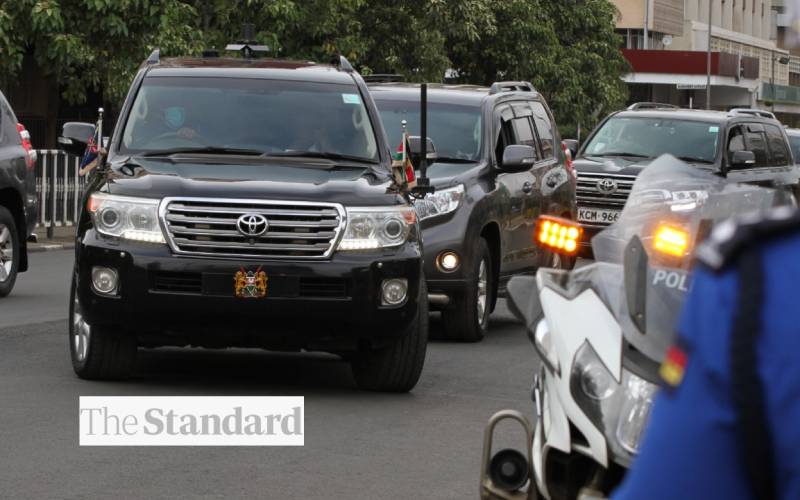×
The Standard e-Paper
Home To Bold Columnists

President Uhuru Kenyatta has an elaborate security detail. [Elvis Ogina, Standard]
President Uhuru Kenyatta’s security has come under sharp scrutiny in the past two weeks.